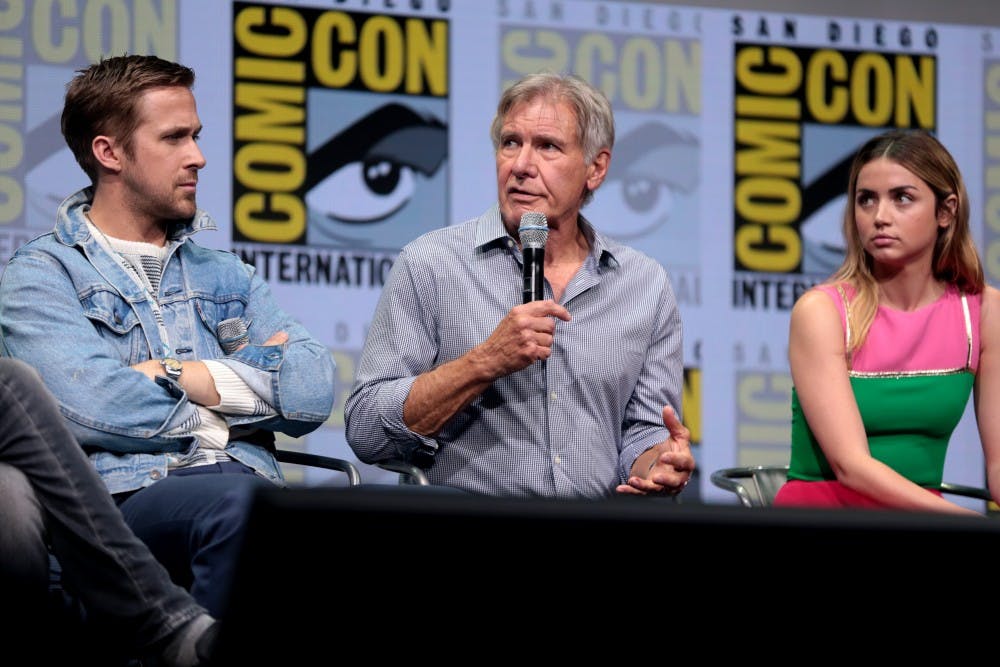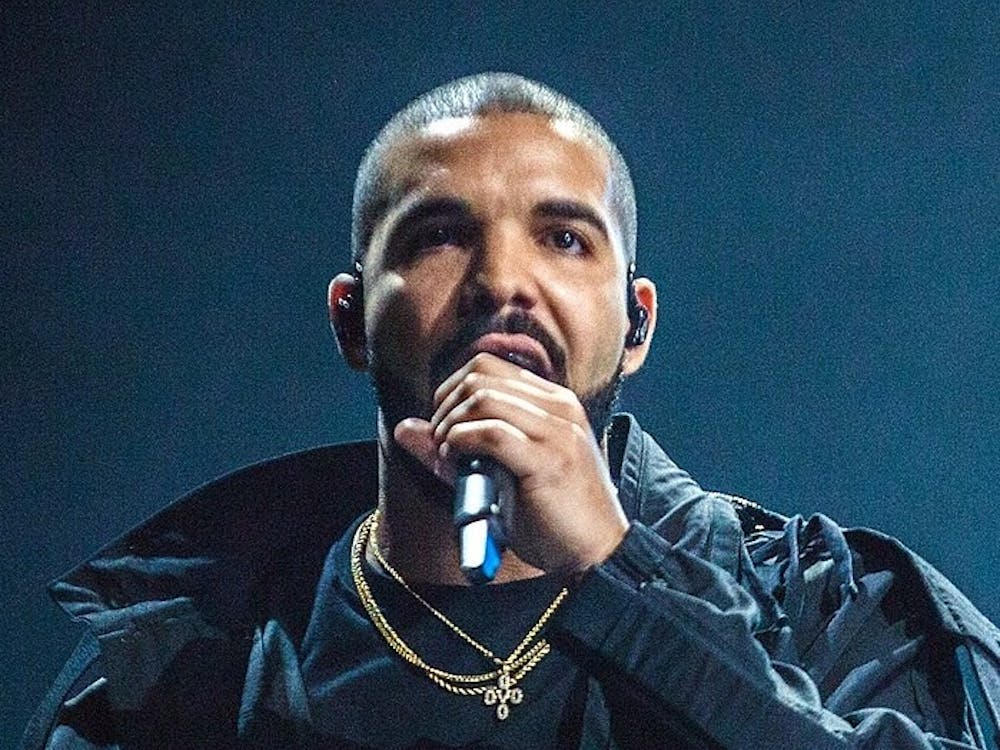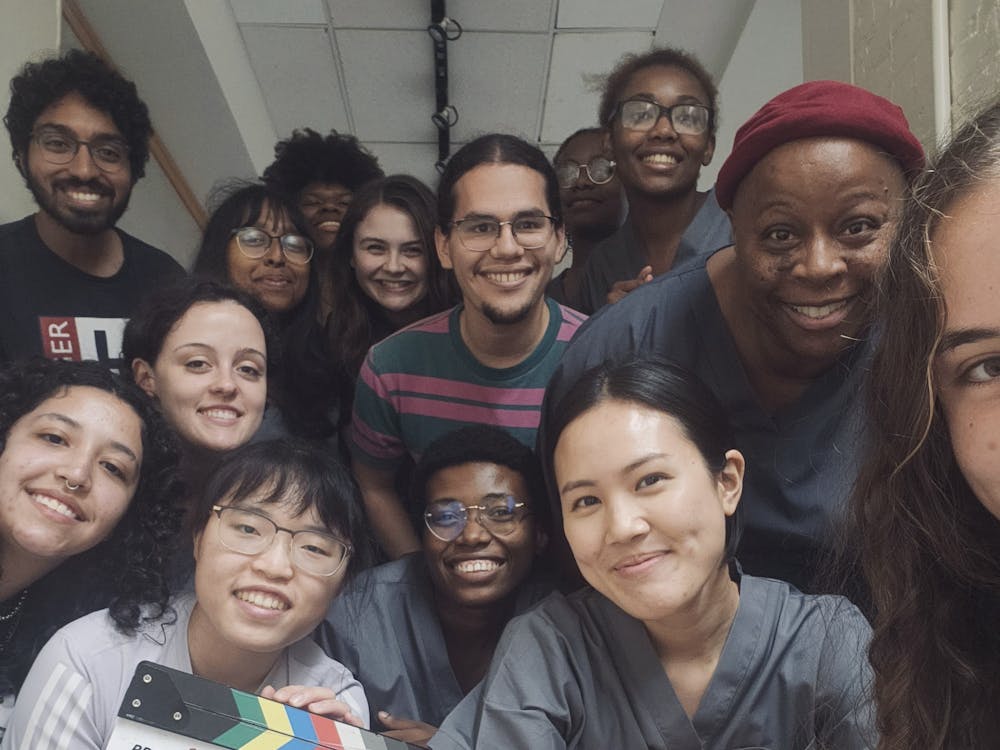In 1982, Ridley Scott and Harrison Ford gave us perhaps one of the best science fiction films of all time. This, of course, is the box-office failure, but critically acclaimed, film Blade Runner.
The film is set in dystopian Los Angeles in the year 2019 and follows LAPD officer Rick Deckard (Harrison Ford) as he’s sent to hunt synthetic humans (these types of officers are called Blade Runners), known as replicants who are on Earth illegally (they are commonly used as a workforce for offworld colonies).
The film was not only revolutionary in terms of effects with its world development full of giant billboards and smoggy, claustrophobic Los Angeles setting, but also in its themes.
The film explores humanity at its core. Deckard’s use of an empathy test to distinguish between human and replicant is meant to reflect the cold bitterness of this dark future.
It leaves us wondering why we give ourselves the absolute authority to assign humanity to others. This theme has been explored in the HBO series Westworld and Alex Garland’s directorial debut Ex Machina.
The announcement of a sequel to Blade Runner was met with some serious questions, primarily who would be entrusted with the world that Ridley Scott created all those years ago.
We’ve already seen that Scott isn’t good at letting go (just look at the Alien franchise), but his commitment to continuing the story he started in Prometheus led to the mission of finding someone else.
Enter Denis Villeneuve, a French-Canadian director who, at the time of the announcement that he would be directing the sequel Blade Runner 2049, was known mostly for the thriller Prisoners, which starred Jake Gyllenhaal and Hugh Jackman.
It’s safe to say Villeneuve’s attachment to the project was considered a risky decision up until he released Sicario in 2015 and Arrival in 2016. The latter was nominated for the Oscar for Best Picture and is widely considered as one of the best films of that year.
Villeneuve’s ability to create films that have you at the edge of your seat while bringing philosophical and ethical questions to the forefront was perfect for the world of Blade Runner.
Throughout the production of the film, plans were kept tightly under wraps. Nobody really knew what was going to happen with the plot synopsis and trailers either.
Well I’m here to tell you to avoid reading anything other than this review. Everything is a spoiler thanks to the fantastic marketing campaign that Warner Bros. employed.
The basics are these: K (Ryan Gosling) is an LAPD officer that is sent out to retire old models.
On one of his missions he discovers something that shouldn’t be possible. This leads him to search for a man long thought dead: Rick Deckard, the original Blade Runner.
In the midst of all this, Niander Wallace (Jared Leto) and his assistant Luv (Sylvia Hoeks) are also searching for Deckard so they can learn how to develop better replicants.
The cast is rounded out by the fantastic Robin Wright as Lieutenant Joshi and Ana de Armas as the holographic A.I. girlfriend Joi. It’s a little difficult to discuss this movie without spoiling anything, so bear with me.
Ryan Gosling is at his best here, showing us his acting range as he did in films like Drive and The Nice Guys.
He’s able to convey every emotion through facial expressions while also giving K enough tics to where we can tell that he’s beginning to question his own mission and his own purpose in life.
His companion is Joi, who is nothing more than a form of artificial intelligence that is created to serve whoever owns the technology.
Ana de Armas is great in the role as the wide-eyed and sentimental Joi. However, she’s little more than a complement to K, giving the audience a view into K’s world and how mundane it really is.
Harrison Ford’s return as Rick Deckard is fantastic; it really feels like he is acting and not phoning it in (a la Indiana Jones and The Crystal Skull). Robin Wright also does a great job in her small role.
However, the standout is definitely Sylvia Hoeks as Luv, who isn’t just Wallace’s right hand. She is her own character who aspires to be more human (she is a replicant, but that’s been obvious since the trailer) by being the best replicant out there.
The weakest member of the cast is hands down Jared Leto who, although he is much better here than as the Joker in last summer’s god-awful Suicide Squad, doesn’t serve any real purpose.
The philosophical questions that he brings up in most of his monologues are expositional dumps that make it a little bit easier tounderstand what the stakes are, but by the end of the day he just kinda creeps you out. Luv is the real antagonist in this story and she’s great at being a foil to Gosling’s K.
Even if you aren’t into deep existential questions about humanity and whether we have the authority to define who is subhuman, go see this movie because holy hell is it gorgeous.
Roger Deakins (Skyfall, No Country for Old Men) is the cinematographer; he and Villeneuve create a world that not only captures that of the original film but also expands on it.
The neon colors blend in so well with the smoggy, dark, cold Los Angeles that we are shown and can only assume has gone through so much ecological damage.
The use of silhouettes is prominent in the film — further emphasizing the debate of “human or not human” — and the strong oranges in the futuristic version of Las Vegas are absolutely freaking beautiful.
The overhead and establishing shots that are a huge part of this film’s beauty are complemented spectacularly by an amazing score by Hans Zimmer.
The combination drags you into the different environments, quickly changing pace and tone. This really hits you with the sentimental and thought provoking moments in the film.
Creating a sequel to Blade Runner wasn’t only a challenge due to the complexity of the themes that the first film explored, but it was also a financial risk.
Although Villeneuve has a history of working with smaller budget films, the cast and his rising star in Hollywood led to such a massive budget.
This is something that — judging from the box office numbers at the end of the weekend — will come back to stain this fantastic film and potentially hinder anther sequel and Villeneuve’s rising star.
Regardless, Blade Runner 2049 is an example of a successful sequel. Villeneuve managed to celebrate the work of Scott while creating something new and beautiful in its own right. Basically, this is the opposite of Spiderman 3.
2049 is a true sequel to the first film and expands on its thematic elements. It’s a gorgeous watch, and the cast does an amazing job with their performances.
If you want to watch something that makes you question your own humanity then this is the movie for you.























Please note All comments are eligible for publication in The News-Letter.